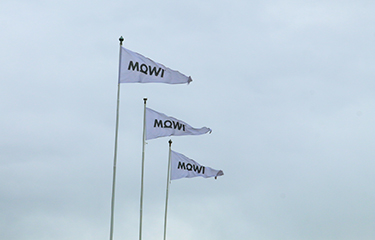The U.S. Department of Justice has dropped its investigation of Mowi’s involvement in alleged price-fixing in Norway’s farmed Atlantic salmon market, according to the Bergen, Norway-based company.
“Mowi has been informed by the Antitrust Division of the Department of Justice in the U.S.A. that they have no longer an open investigation into Mowi,” the company said in a 18 January statement. “Mowi has all along been adamant that the price collusion allegations have clearly lacked merit and are entirely unsubstantiated.”
The European Commission began an inquiry in February 2019 into potential price-fixing of Norwegian farmed salmon, which included raids of the Scottish and Dutch corporate offices of Mowi, Grieg Seafood, SalMar, and Leroy Seafood. The U.S. DOJ initiated its own investigation in November 2019, according to the companies involved in the European inquiry, which each received subpoenas on 15 November, 2019.
In its latest statement, Mowi said there was “no new information” regarding the European Commission’s case.
The DOJ has ignored several requests from SeafoodSource for more information regarding its investigation, and has not issued any public statements on the matter. After issuing an initial statement acknowledging its investigation, the European Commission has also dismissed requests from SeafoodSource for comment.
A letter sent in February 2019 by the E.C. to several Norwegian salmon producers, seen by SeafoodSource, outlined the inquiry’s scope.
“The commission has received information, from different actors operating at different levels in the salmon market, alleging that some Norwegian producers of farmed Norwegian Atlantic salmon participate in or have participated [in] different ways of price coordination in order to sustain and possibly increase prices of farmed Norwegian Atlantic salmon,” the letter said.
Mowi, SalMar, Lerøy Seafood, Grieg Seafood, and Cermaq all announced on Wednesday, 25 May, 2022, a USD 85 million (EUR 79.7 million) settlement of a complaint from direct-purchaser plaintiffs in the United States who accused them of conspiring to fix the prices of farmed salmon they sold in the U.S.
“While all Defendants reject that there is any basis for the claims and consider the complaints to be entirely unsubstantiated, all Defendants in the U.S. class action related to the direct purchaser case have now, following a mandatory mediation procedure, accepted a settlement offer from the direct purchaser plaintiffs subject to approval by the court of Southern District of Florida,” the five seafood companies said in a joint press release.
The companies “expressly reject the allegations regarding anti-competitive behavior and strongly believe that the antitrust claims lack merit,” they said.
However, they decided to settle “given that the costs of litigation in the U.S. are substantial, coupled with the timeline for any litigation and required engagement of extensive internal resources.”
“[We] have nonetheless agreed to a settlement for pure commercial purposes,” they said. “The settlement does not involve any admission of liability or wrongdoing.”
The lawsuit, filed in April 2019, alleges the companies exchanged competitively sensitive information among themselves, with the aim of artificially controlling the price of farm-raised salmon bought by U.S. seafood buyers, a violation of the Sherman Anti-Trust Act.
A second settlement in a class-action lawsuit from indirect purchasers in the United States was reached in October 2022 for USD 33 million (EUR 33.7 million).
Photo courtesy of Pal Nikolaisen/Shutterstock







